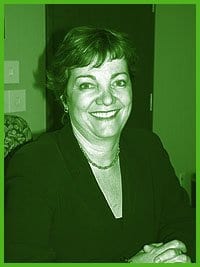Things are getting queer in that other war – the Liberal leadership race.
The three declared candidates for Jean Chrétien’s job – expected to become available next winter – have all made overtures to the gay and lesbian community in the last couple of weeks with interviews and visits to homo haunts.
Deputy Prime Minister John Manley popped by for an intimate cocktail reception at Church St’s swank Byzantium the same stormy Apr 3 night that front-runner Paul Martin opened the campaign office of provincial Toronto Centre-Rosedale MPP George Smitherman.
(Smitherman’s support of Martin has raised a few eyebrows among Liberal insiders. He and his housemate, campaign manager Tom Allison, were both in the Allan Rock camp until the industry minister backed out of the race a few months ago. Smitherman went to over to Martin, while Allison went to work for Heritage Minister Sheila Copps, whichmust make for cryptic entryway conversation.)
Manley was introduced to the Byzantium gang by his openly gay executive assistant Tony Macerollo, making it clear that the Liberal party is built on the backs of behind-the-scenes homos. Do they love us or merely love their staff?
In his remarks, Manley seemed to be positioning himself left of Martin, but not so far left as fellow underdog Copps. Though friendly, his style seemed more Rotary Club than gay village.
“I must have misread my schedule,” he joked. “I thought I had a meeting with a grey group…. All my notes have to do with seniors’ issues.”
Manley told the audience of about 30 people that he has no problems with equal same-sex marriage. But when asked if he would accept a separate type of relationship registration system for homos, he side-stepped, avoiding the word “marriage” altogether.
“If you have the characteristics of the relationship, government should treat it the same,” Manley said. “Let’s see what the committee comes back with,” referring to the Parliamentary Standing Committee On Justice And Human Rights that’s currently examining the issue of same-sex marriage. (For more on that committee, turn to page 7.)
In an interview at a Bay St law office, Copps was unequivocal in her support of gay and lesbian people having access to the institution of marriage. But the standing committee – made up of at least three members of Parliament who have been open about their lack of interest in same-sex marriage – might advise against it or recommend an equal-but-separate system. How would prime minister Copps respond?
“I’m telling you what I believe in and as prime minister I will implement the promises that I make during the Liberal leadership race,” she says.
What does Copps think of the idea of the government getting out of the marriage business, regulating relationships based on interdependency rather than sex and leaving coupledom to churches?
“It depends on what your objectives are. If your objectives are to give a legal frameworkfor legal dependence, that’s a legitimate question to ask,” she says. “But the reason I feel very strongly that we should permit and encourage a legal framework for equal marriage for gays and lesbians because it is about your choices. You shouldn’t be required to make a choice that treats you like a second-class citizen.”
On the issue of Canada Customs’ continued targeting of lesbian and gay bookstores – even after being ordered to stop by the Supreme Court Of Canada – Copps wondered if the problem is more about bureaucracy.
“I think you need to create an expeditious way of dealing with things. In terms of Canada Customs’ delays, I even get that from people who are trying to cross the border to work in the film and television industry,” says Copps.
But what about books that get stopped en route to Glad Day Bookshop or Little Sister’s, but not to mainstream retailers like Chapters or Amazon.ca?
“I’ll look into it…. I thought they were busy doing other things, frankly,” Copps said. “It could be the vestige of an old time that needs to be swept away.
“The other thing is… that in this borderless world that if you can get something [on the Internet] it seems sort of silly that it gets stopped at the border.”
Manley and Copps both expressed puzzlement over how the police use the bawdy house provisions of the Criminal Code to arrest adults having consensual sex in bathhouses.
“Police shouldn’t be using that as a pretext to harass anyone,” Manley said. “What you guys do in a bathhouse isn’t anything the police should be preoccupied with, there’s crime the streets.”
Copps says that modernizing Canada’s sex laws, including the bawdy house laws, is something she’d be willing to look at.
“There are probably a fair number on the books that are not enforced in a uniform way for a lot of different reasons,” she says. “I remember the [Toronto bathhouse raids] in the early 1980s and at that time I didn’t even realize it was still on the books. Maybe we need to take a look at why they’re there.”


 Why you can trust Xtra
Why you can trust Xtra


